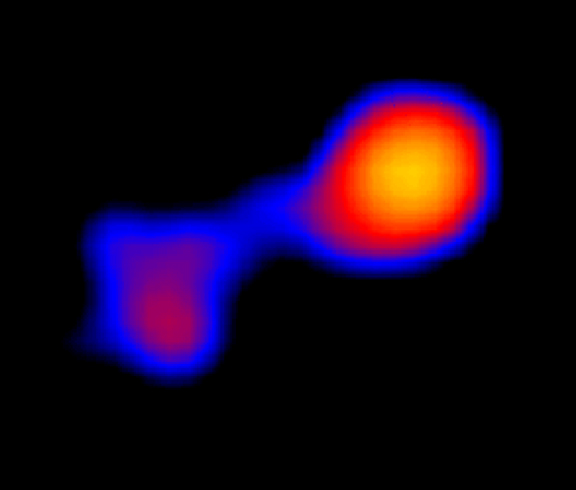 |
Астронет: Астрономическая картинка дня Удивительная звезда Мира http://www.astronet.ru/db/msg/1214908/eng |
Credit & Copyright: X-ray Image:
M. Karovska
(Harvard-Smithsonian CfA)
et al.,
CXC /
NASA
Illustration: M.Weiss(CXC)
Explanation:
To seventeenth century astronomers,
Omicron
Ceti or
Mira was
known as a wonderful star - a star whose brightness could change
dramatically in the course of about 11 months.
Modern astronomers now recognize an entire class of long period
Mira-type variables as cool,
pulsating, red giant stars, 700 or so times the diameter of the Sun.
Only 420 light-years away,
red
giant Mira (Mira A, right) itself
co-orbits with a companion star, a small white dwarf (Mira B).
Mira B is surrounded by a disk of material drawn from the pulsating
giant and in such a double star system, the white dwarf star's
hot accretion disk
is expected to produce
some x-rays.
But this sharp,
false-color image from the Chandra Observatory also
captures the cool giant star strongly
flaring at
x-ray energies, clearly
separated from the x-ray emission of its companion's accretion disk.
Placing your cursor over the Chandra x-ray image of Mira will reveal
an artist's vision of this still wonderful
interacting binary star system.
Illustration: M.Weiss(CXC)
Authors & editors:
Robert Nemiroff
(MTU) &
Jerry Bonnell
(USRA)
NASA Web Site Statements, Warnings,
and Disclaimers
NASA Official: Jay Norris.
Specific
rights apply.
A service of:
LHEA at
NASA /
GSFC
& Michigan Tech. U.
